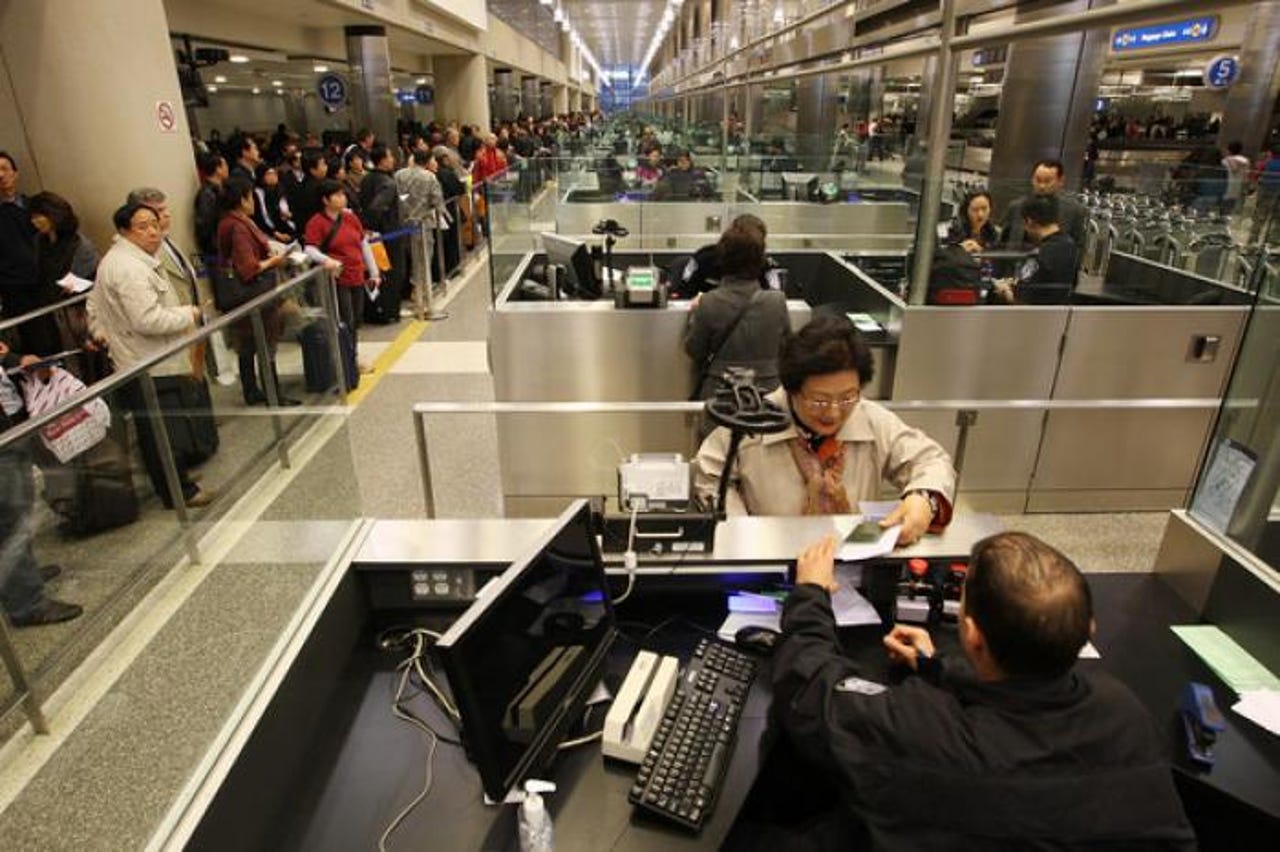US visitors may be forced to turn over phones and passwords before they get visas


(Image: file photo)
Foreigners visiting the US may soon be required to turn over their phones and passwords before they are let in, as part of "extreme vetting" proposals floated by the Trump administration.
The proposed new screening procedures may also require visitors to answer invasive questions about their beliefs and ideology, according to a Wall Street Journal report.
Administration officials are also pushing to subject more visa applicants to deeper scrutiny and vetting at US embassies abroad, where constitutional and legal protections against unreasonable searches and seizures typically don't apply.
The changes to the rules, which have yet to be formally announced, include proposals to ask prospective US visa applicants to turn over their phones to allow a closer examination of a person's contacts and other information.
That would be a departure from current policy, which allows border officials to inspect phones and other devices at the border. Although only a fraction of travelers are ever subject to a device search, based on figures obtained by the American Civil Liberties Union, newer statistics suggest that the number of border searches has exploded year over year to 2016 by over five-fold.
Earlier proposals to force travelers to turn over their phones and data at the border were criticized by civil liberties groups and called "overbroad" and "intrusive" by a former National Security Agency lawyer.
"To do that sort of collection on this scale would be quite detrimental to intelligence activities, because you would get so much garbage that has nothing to do with anything," said April Doss, a former associate general counsel at the intelligence agency, at the time.
The plans also suggests that travelers may also be asked their social media account passwords prior to being granted a visa, a step-up from the current entry system that allows travelers to disclose their profiles voluntarily.
Unlike earlier executive action by Trump, the rules are said to target applicants from all over the world, including allies, such as France and Germany, which were named in the report.
The rules may also apply to other countries that participate in the visa waiver program, including the UK, Japan, and Australia, which allow visa-free travel to the US from three-dozen countries.
The list of nations hasn't been finalized, but US Secretary of State Rex Tillerson has asked the government's embassies and consulates to find "populations warranting increased scrutiny."
European data protection regulators have also expressed concern about the rights of EU nationals whose data would have to be collected and used by the US government.
The move to ramp up the screening of potentially millions of visa applicants is said to be part of Trump's effort to make good on his campaign promise of "extreme vetting," which hinged on targeting citizens of majority Muslim populations.
Trump signed an executive order in late January blocking migrants from seven majority Muslim nations, including Iraq and Syria, but it was swiftly stayed by a federal judge. A month later, Trump signed his second executive action targeting the same countries, sans Iraq, but it was also blocked.
Details of the new so-called "extreme vetting" effort have yet to be formally announced by the administration. A White House spokesperson did not respond to a request for comment.
VIDEO: US prohibits electronics in cabins of some flights from Middle East